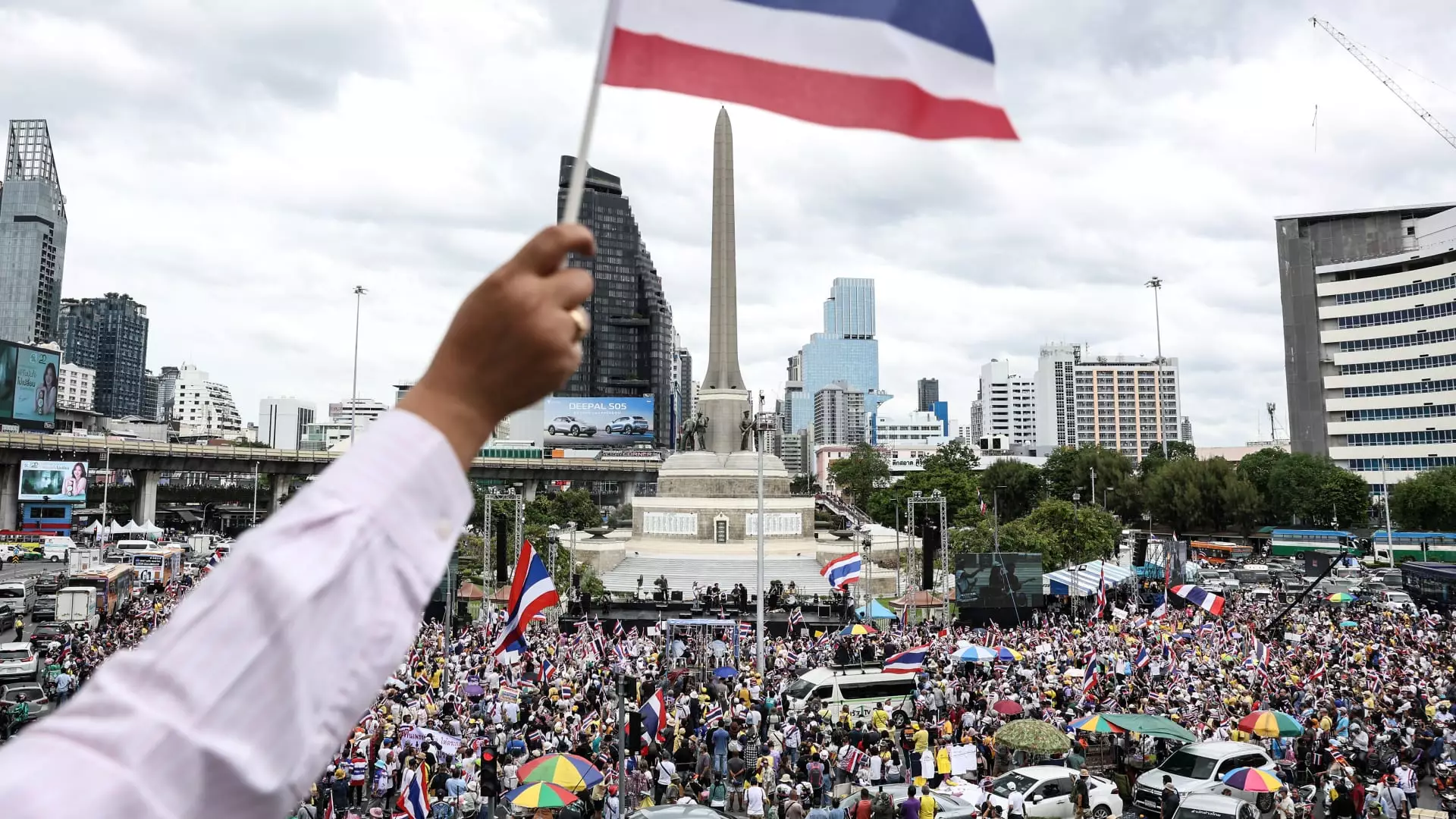The recent mass demonstrations in Bangkok signal more than just dissatisfaction with Prime Minister Paetongtarn Shinawatra’s administration; they reveal deep-seated fractures in Thailand’s tumultuous political landscape. The largest anti-government protest since her ascent in 2023 is not merely a grassroots uprising—it is a harbinger of profound instability that could potentially topple a government struggling to hold its coalition together. The protest, fueled by nationalist sentiments and concerns over sovereignty, underscores how vulnerable Thai democracy remains to the pressures of internal discord and external diplomatic tensions.
A Leadership Crippled by Controversy and Vulnerability
Paetongtarn’s leadership is precarious, teetering on the edge as multiple forces converge to undermine her grip on power. Her government’s faltering economy demands swift and decisive action, yet she finds herself mired in a diplomatic debacle triggered by a leaked phone conversation with former Cambodian prime minister Hun Sen. The apparent circumvention of Thailand’s military hierarchy—still a dominant political force—offended powerful domestic constituencies, especially the army, whose tacit approval is indispensable for governance stability. Paetongtarn’s public apology, while necessary, points to a fundamental miscalculation of the country’s political sensitivities and coalition dynamics.
Nationalism as a Double-Edged Sword
The protests, spearheaded by groups like the United Force of the Land, illustrate the persistent potency of nationalist rhetoric in Thai politics. Historically, such rhetoric has been wielded not just to challenge governments but also to justify judicial interventions and military coups, as seen in 2006 and 2014. The current unrest thus taps into a dangerous undercurrent—while nationalism appeals to patriotic pride, it simultaneously threatens to erode democratic institutions by encouraging extra-parliamentary interventions and disrupting the rule of law. This cyclical pattern of unrest and authoritarian impulses casts a long shadow over Thailand’s democratic progress.
The International Dimension of a Domestic Crisis
What makes this crisis particularly volatile is its entanglement with Thailand’s relationship with Cambodia. Hun Sen’s unprecedented public condemnation of Paetongtarn and calls for regime change in Thailand inject an external provocation into an already fraught domestic situation. This highlights how regional geopolitics can exacerbate internal fault lines, transforming bilateral disagreements into catalysts for domestic political upheaval. The Thai government’s insistence on diplomacy is commendable in theory, but the reality is that national sovereignty anxieties, compounded by external interference and internal factionalism, create an almost combustible environment.
Democracy Stalled in the Crossfire
The looming no-confidence vote and the judicial scrutiny facing Paetongtarn epitomize the fragile nature of democratic governance in Thailand. The interplay between elected officials, an influential military, nationalist activists, and an assertive judiciary reveals a system where democratic norms are constantly challenged. While Paetongtarn’s willingness to allow peaceful protests signals a nominal respect for democratic rights, the broader political climate suggests systemic constraints that hinder genuine democratic resilience and reform.
Thailand today is at a crossroads—its future contingent on whether it can break free from cycles of nationalist agitation, military influence, and fragile coalitions. Paetongtarn’s government faces not just protests but the weight of history in which democracy is persistently tested by the tug-of-war between authoritarian impulses and popular will. The question remains whether new leadership paradigms, rooted in transparency and genuine inclusivity, can emerge to steer the country toward stable and progressive governance.


Leave a Reply